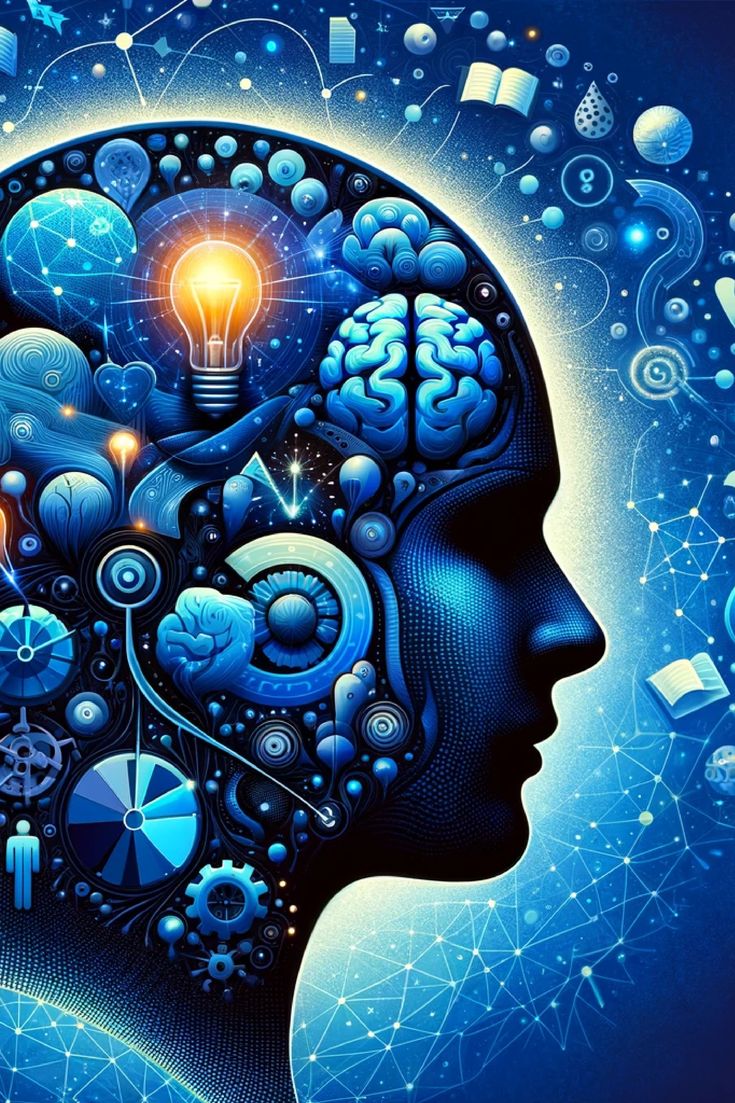World Brain Day: Celebrating the Power of the Mind
Introduction
World Brain Day is a global observance dedicated to raising awareness about brain health and its significance in our lives. Celebrated every July 22nd, this day aims to highlight the importance of maintaining brain health, understanding brain-related disorders, and advocating for better healthcare services for neurological conditions. With the growing burden of neurological diseases, it is more important than ever to raise awareness, encourage research, and provide support for those living with brain disorders.
World Brain Day is a collaboration between the World Federation of Neurology (WFN) and other health organizations. Each year, the theme of World Brain Day focuses on a specific brain-related issue, shedding light on new findings, treatment options, and preventive measures. This observance encourages the public to take a proactive approach to brain health and to foster conversations about the brain’s pivotal role in our daily lives.
History
It was first observed in 2014 by the World Federation of Neurology (WFN), a nonprofit organization that promotes brain health awareness and the prevention of neurological diseases. The day was created as part of the efforts to highlight the growing challenges faced by individuals affected by brain disorders and to push for increased research and awareness around the global burden of neurological diseases.
In the years since its inception, World Brain Day has grown in both scope and recognition. Each year, the WFN selects a different theme for the day to address specific issues, such as Alzheimer’s disease, Parkinson’s disease, stroke prevention, and more. The primary goal of this day is to bring attention to these conditions and to help fight the stigma that often surrounds mental health and neurological disorders.
Facts About World Brain Day
- Increasing Global Burden: Brain-related diseases affect millions of people worldwide. Conditions such as stroke, Alzheimer’s, and Parkinson’s are responsible for significant morbidity and mortality globally. World Brain Day highlights these challenges and aims to educate the public about prevention and early intervention.
- Neurological Disorders Are Common: Approximately 1 in 6 people worldwide suffer from neurological disorders. These can range from relatively mild conditions such as migraines to severe and debilitating diseases like multiple sclerosis (MS) or brain tumors. World Brain Day serves as an opportunity to address these concerns and promote a deeper understanding of the impact of neurological diseases on individuals and families.
- Brain Research Saves Lives: Research into neurological diseases has led to significant advances in the treatment and management of various conditions. On World Brain Day, the importance of continued research and innovation is emphasized to find better treatments and potential cures for brain-related diseases.
- Brain Health and Prevention: Prevention is key to maintaining a healthy brain. World Brain Day encourages people to adopt healthy habits such as exercising regularly, eating a balanced diet, managing stress, and getting enough sleep—all of which contribute to optimal brain health.
- Global Support Networks: World Brain Day provides a platform for people with brain-related conditions, their families, and caregivers to connect with one another. These global support networks are crucial in helping individuals navigate the challenges they face and raise awareness about the importance of brain health.
Significance
- Raising Awareness: The primary significance of World Brain Day lies in raising public awareness about the importance of brain health. The day serves as a reminder that the brain is the most complex organ in the body, responsible for regulating our thoughts, emotions, actions, and physical functions. As such, brain health deserves the same attention as physical health.
- Fostering Research and Innovation: Brain diseases such as Alzheimer’s, dementia, epilepsy, and neurodegenerative disorders can have a profound impact on individuals and their families. By bringing attention to the pressing need for research, World Brain Day advocates for greater investment in studying the brain and developing new treatment options. The progress made in the field of neurology and brain science has the potential to drastically improve the quality of life for many people.
- Supporting Individuals Affected by Brain Disorders: It offers an opportunity to provide support to individuals living with neurological disorders. By sharing their stories and raising awareness, individuals can feel more empowered, less isolated, and better supported by the community. Support groups and advocacy organizations often host events during this day to provide resources and help build stronger connections among those affected.
- Encouraging Early Detection and Prevention: Neurological diseases are often diagnosed late, which can make treatment more difficult. World Brain Day encourages early detection through regular check-ups, recognizing symptoms early, and adopting preventative measures to reduce the risk of developing neurological conditions later in life.
- Addressing Stigma: There is still significant stigma associated with mental health and neurological diseases, and many people feel ashamed to talk about their conditions. World Brain Day helps to break this stigma by promoting open dialogue and educating the public about the reality of living with neurological conditions.
Daily Life Impacts
- Mental Health Awareness: It sheds light on the critical relationship between brain health and mental health. Conditions such as anxiety, depression, and schizophrenia are part of a larger spectrum of brain disorders. This observance encourages individuals to seek help, practice self-care, and engage in discussions about mental well-being.
- Lifestyle Adjustments: By emphasizing the importance of brain health, World Brain Day encourages individuals to make lifestyle changes that contribute to better cognitive function. These can include regular physical activity, healthy eating, mindfulness, and mental exercises such as reading or solving puzzles to keep the brain engaged.
- Improving Education: It fosters better understanding and education about neurological diseases among students, healthcare workers, and the general public. Schools and healthcare centers may organize events or information sessions to provide insights into brain health and preventive measures.
- Health Screenings and Check-ups: On World Brain Day, many organizations offer free health screenings for neurological conditions such as stroke risk, mental health issues, and cognitive decline. These screenings can serve as an early warning for potential health concerns, prompting individuals to seek medical advice promptly.
- Social Engagement and Support: It provides opportunities for social engagement, particularly for those with brain disorders. By joining events, support groups, and educational activities, individuals gain a sense of belonging and empowerment, fostering a supportive environment for those facing neurological challenges.
FAQs
1. When is World Brain Day celebrated?
World Brain Day is celebrated annually on July 22nd.
2. Why is World Brain Day important?
It is important because it raises awareness about neurological diseases, encourages healthy brain habits, and promotes research for better treatment options.
3. What themes are associated with World Brain Day?
Each year, World Brain Day focuses on a specific theme related to brain health, such as stroke prevention, neurodegenerative diseases, or mental health.
4. How can I participate in World Brain Day?
You can participate by attending events, donating to brain health organizations, sharing educational materials on social media, or simply practicing good brain health habits.
5. How can I keep my brain healthy?
You can maintain brain health by exercising regularly, eating a balanced diet rich in nutrients, staying mentally active, getting adequate sleep, and managing stress levels.
Conclusion
It plays a vital role in promoting brain health awareness and advocating for the millions of people affected by neurological disorders. By raising awareness, fostering research, supporting individuals, and encouraging preventative measures, World Brain Day helps create a more informed and compassionate society. It reminds us that the brain is the powerhouse of our bodies and must be given the care and attention it deserves to ensure a healthier and brighter future for all.











На данном сайте вы сможете найти свежие новости Краснодара.
Здесь собраны актуальные события города, репортажи и оперативная информация.
Следите за развития событий и читайте только проверенные данные.
Если вам интересно, что нового в Краснодаре, заглядывайте сюда регулярно!
https://rftimes.ru/